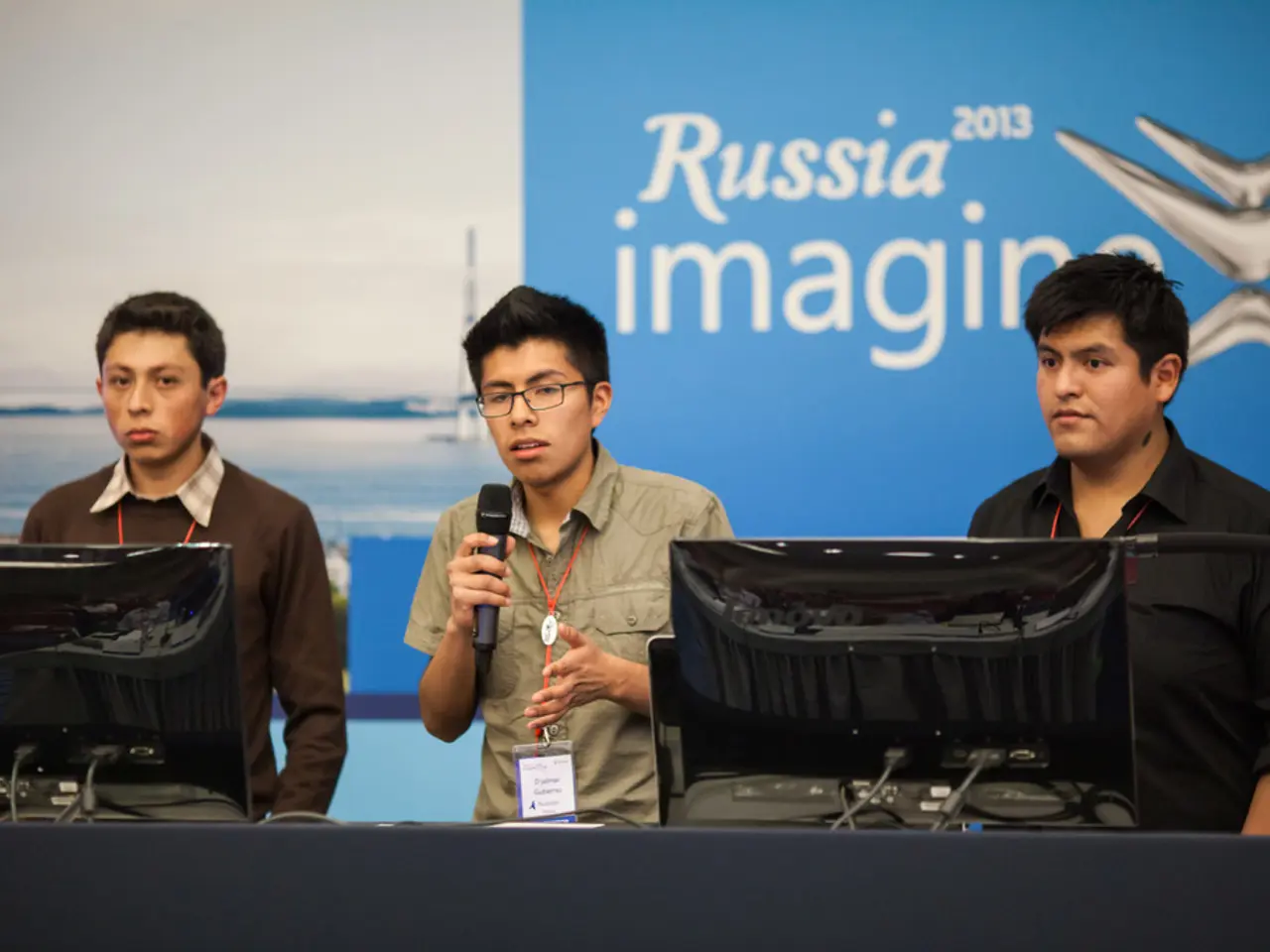Nearly half of tasks within Africa's expanding technological outsourcing industry could be impacted by artificial intelligence by the year 2030.
The tech outsourcing industry in Africa is experiencing rapid growth, with Kenya's market expected to reach $272.1 million by 2025, expanding at a rate of 5.96% annually. However, this expansion comes with challenges, as automation threatens entry-level jobs that make up 68% of the workforce.
A new report by Caribou, Genesis Analytics, and the Mastercard Foundation predicts that AI could automate 40% of tasks in Africa's growing tech outsourcing sector by 2030. The report suggests that proactive policies are needed to address gender disparities, as women's tasks in the sector are 10% more vulnerable to automation than men's.
Despite the looming threat of automation, the report also highlights opportunities for transformation and resilience. AI is already integrated into Africa's outsourcing sector, with tools like ChatGPT, Microsoft Copilot, and in-house AI chatbots driving efficiency. Workers are leveraging AI for coding, content creation, and customer service, freeing them up for higher-value, strategic work.
To future-proof jobs in Africa's tech outsourcing industry, several strategies have been identified. These include specialized technical training programs, partnerships with digital skills training organizations, focusing on hyper-specialization and niche skills, leveraging the young, connected workforce, flexible and modular learning models, wider social ecosystem engagement, and promoting remote-first work preparedness.
Specialized technical training programs offer short, intensive courses aimed at preparing youth for employment in tech and digital roles. These programs focus on in-demand areas like software development, cybersecurity, AI, and multilingual customer support. Leading firms are also collaborating with digital skills educators to provide practical and employment-oriented curricula.
The focus on hyper-specialization and niche skills necessitates targeted reskilling efforts to develop expertise that automation cannot easily replace. Upskilling workers in such specialized areas future-proofs their roles against automation risks. Africa’s large youth demographic is a key asset, and upskilling strategies are designed to harness their multilingual abilities and tech-savviness, enabling alignment with international standards and leveraging time zone advantages in global outsourcing.
Upskilling programs tend to offer modular, project-based approaches that allow workers to acquire skills progressively without long lock-ins, facilitating continuous learning and adaptability to evolving technology demands. Given shift patterns and operational demands, upskilling also considers ancillary roles supporting the tech outsourcing supply chain, indirectly creating broader economic opportunities for women and young workers.
Training also includes preparing professionals for remote collaboration skills, given the rise of international remote work as a standard model in outsourcing. This improves adaptability and employability in global digital economies.
These strategies, combined with investment in technological infrastructure and economic zones that facilitate practical training and job opportunities, are critical to strengthening human capital in Africa’s expanding tech outsourcing industry, making workers, particularly women and youth, more resilient to automation trends.
Charlene Migwe, CEO of Caribou, emphasizes the importance of investments in skills development, ethical AI, and inclusive policies to transform automation risks into opportunities for innovation and resilience. Rodwell Mangisi, Executive Vice President of the Mastercard Foundation, believes that Africa can lead in AI transformation by ensuring its workforce is AI-ready and investing in upskilling, particularly for women and youth.
Sources: [1] The Mastercard Foundation [2] Caribou [3] Genesis Analytics [4] HGS [5] Shadow Careers
In the growing tech outsourcing sector in Africa, artificial-intelligence is being integrated to drive efficiency, with tools like ChatGPT and Microsoft Copilot already in use. (The tech outsourcing sector, AI)
To future-proof jobs against automation, specialized training programs are being offered to prepare youth for employment in tech and digital roles, focusing on in-demand areas like AI. (specialized training programs, AI)




